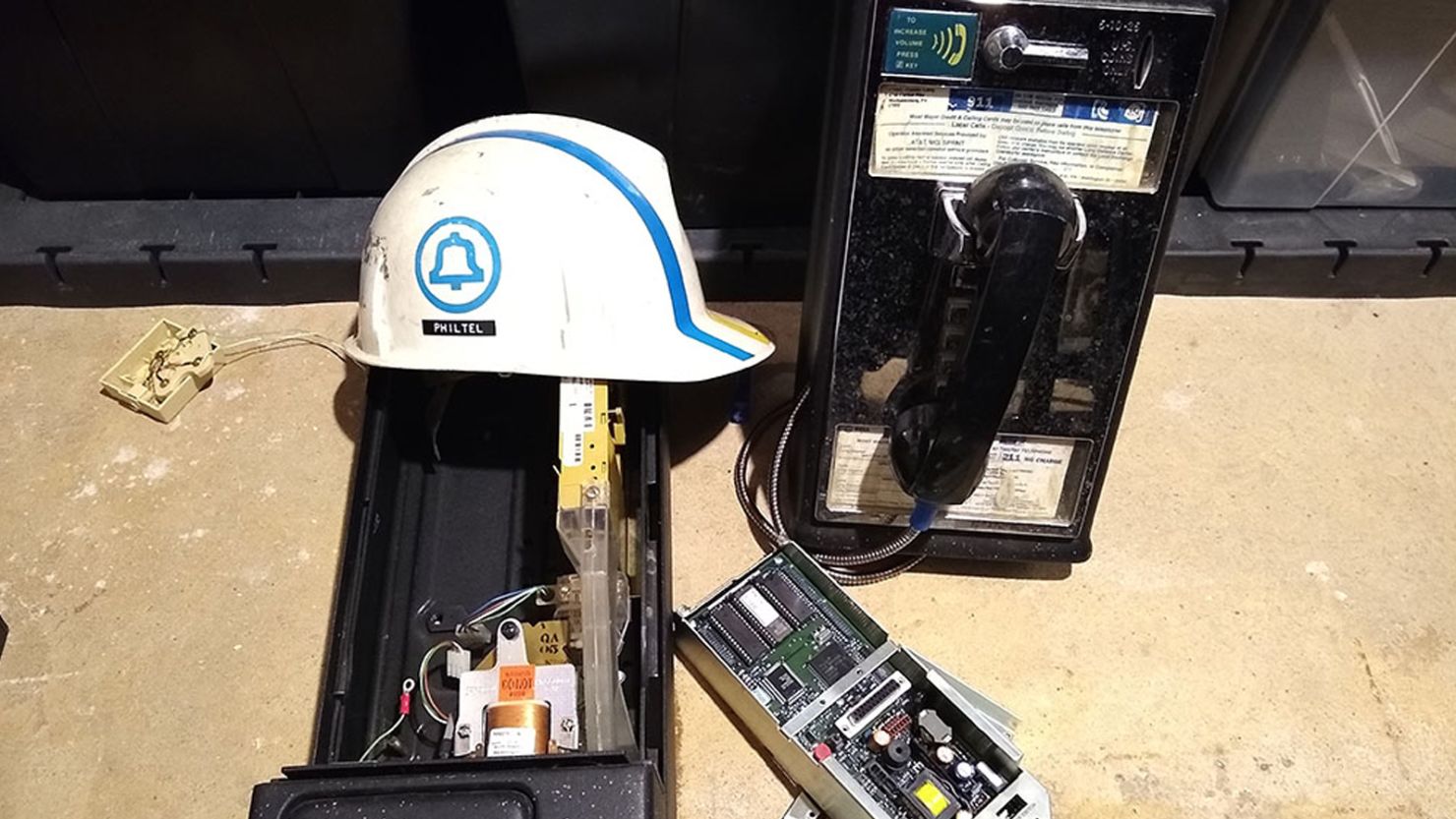An “amateur phone collective” in Philadelphia is working to bring back pay phones to the city – just without the actual payment.
PhilTel, a volunteer organization that launched in June, is planning to open its first free-to-use payphone on December 17 at Iffy Books, a hacker-focused bookshop and workshop in the Center City district.
Mike Dank, one of the organization’s founders, told CNN that the project was inspired by an Oregon man who installed a payphone in his front yard. The project, known as FuTel, was surprisingly popular, leading him to install more phones throughout Portland.
Dank said that although cell phones are widespread, not everyone has one – or is able to keep up with their phone payments. These free phones can help fill the gap for people who need phone access.
“There are people who don’t have access to those resources,” he said. “There’s people in domestic violence situations where a spouse has control over their phone, and yet they need ways to access people. So yeah, there’s people who need it.”
Dank said there are currently around 50 working payphones left in Philadelphia. As payphones deteriorate and fall into disrepair, the communities that depend on them might be left in the dust.
“Maybe they’ve had a payphone on their street corner that they’ve been using for the past 20 years, all of a sudden, that’s gone,” he explained. “What are they going to do?”
The free phones will also provide a hit of nostalgia in a rapidly digitizing world, according to Dank.
“It’s kind of like a cool, nostalgic novelty” which will let users “relive the days when payphones were everywhere,” he said.
Dank calls the volunteer-run initiative “half art project, half community service.”
“It’s a sort of labor of love,” he said.
Iffy Books felt like a “natural first place” to install a phone because of the book store’s status as a “community watering hole” for hackers, artists, activists, and engineers, he said.
“Then we’ll see how people use it, how people react to it, and hopefully drum up some more interest to get more of them installed throughout the city,” he said.
In the future, PhilTel might install more phones at small businesses, like bars, stores, and market spaces. They’re also considering approaching payphone companies whose phones have fallen into disrepair, Dank said. PhilTel could offer to assume responsibility for the upkeep of this existing payphone infrastructure.
Ultimately, Dank hopes to install a free payphone in every Philadelphia neighborhood, so that “any place you are, you’re maybe like, you know, 20 minutes to a half hour walk from one.”

